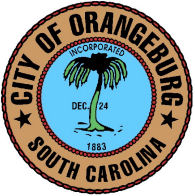
The National Association of Counties (NACo) gave us permission to reprint an article they recently wrote in their County News publication. NACo advocates for county governments on federal policy that impacts local decsion and local control. NACo is based in Washington, D.C.
In the article, author Charles Taylor discusses the perils of Oconee and Orangeburg Counties in South Carolina, both involved in broadband projects supported by stimulus funds. Because of a new law passed this past summer, those projects are in danger and the possibility of future projects is all but extinguished.
Rural counties' broadband projects face uncertainty
The success of two South Carolina counties’ plans to provide broadband access to rural areas could be in jeopardy because of a new state law that severely restricts public broadband projects. It also essentially bans new ones.
Oconee and Orangeburg counties received more than $27 million in federal stimulus funds in 2010 for rural broadband projects.
A South Carolina law, enacted in July, requires local governments that offer broadband Internet services to charge rates similar to those of private companies, even if the government could provide the service at a lower cost and the area is not served by commercial providers.
“It effectively prohibits municipalities from operating their own broadband systems through a series of regulatory and reporting requirements,” said Catharine Rice, president of the SouthEast Association of Telecommunications Officers and Advisors (SEATOA). “These practically guarantee municipalities could never find financing because the requirements would render even a private sector broadband company inoperable.”
SEATOA represents local government broadband planners and community video programmers in Georgia, North Carolina, South Carolina and Tennessee. While the statute won’t kill the projects already underway, it could limit their potential.

Orangeburg County received more than $18 million to build a “last-mile” fiber project — connecting directly to end users — serving about 25 percent of the rural county. It also invested about $4 million of its own money in the project.
“We have the ability to move forward and complete the project that we have,” said Harold Young, Orangeburg County administrator. “But the viability of the whole broadband system is put in jeopardy because this bill doesn’t allow us to expand past the initial phase of what we were doing.” That expansion is needed to make the project sustainable. Orangeburg, a “persistent poverty” county as defined by federal standards, applied for the grant to address “economic and educational disparities that exist within our community.”
Jim Baller is an attorney who has been involved in legislative and legal battles over dozens of cases of state barriers to public broadband projects. “For them not to have complete freedom to do what their citizens need is very difficult to justify,” he said.
Oconee County was awarded $9.6 million for a so-called “middle-mile” project to build a fiber-optic network to serve community anchor institutions such as schools, hospitals and libraries in rural areas of the county, and wholesale customers.
“The legislation, for us, is not a means to prevent us from operating our system. It’s meant to make it more difficult,” Oconee County Administrator Scott Moulder said, “and it’s meant to make it more competitive with the private market.” He doesn’t believe the statute will hamper the county’s ability to comply with the requirements of the federal grant it received, “but that’s still left to be seen, though,” he said.
Laws such as South Carolina’s are being passed in a growing number of states, according to Christopher Mitchell of the Telecommunications as Commons Initiative of the Institute for Local Self-Reliance.
In recent years, 19 states have passed laws that restrict or prohibit municipal broadband projects. And the major telephone and cable companies have opposed public broadband as anti-competitive and contributed heavily to legislators in states passing restrictive laws, he said.
“They want to prevent any new Davids. They’re Goliaths, and they want to make sure that to the extent that they can strangle David in his crib, they’re doing that,” Mitchell said. “To the extent that more networks pop up that show how much less expensive and more reliable (they are) — and faster speed can be distributed at a lower cost — these companies look worse.”
The Minnesota and Georgia state legislatures this year took up bills that could ban public broadband projects; the Georgia measure was turned into a study bill, and the Minnesota bill never made it out of committee.
That was good news for Bob Fox, a Renville County, Minn. commissioner. His county and neighboring Sibley County — along with 11 towns — have developed a proposal to provide “fiber to the farm,” homes, businesses and government facilities in these rural counties.
The RS (for Renville Sibley) Fiber project has created a joint powers board, as Minnesota law allows, to develop a system whose construction would be backed by revenue bonds. All participating communities have until Sept. 25 to vote on whether to participate.
“Agriculture has changed tremendously in the last couple of decades,” said Fox, who also chairs NACo’s Agriculture and Rural Development Steering Committee. “The technology is probably one of the pieces that’s lagging.” He believes that if restrictive legislation is resurrected next year it would grandfather projects already underway.
However these projects work out, the Institute for Local Self-Reliance’s Mitchell sees rural broadband as a potential economic engine — with a parallel to electricity. “Broadband in rural areas is important to me because it improves the economy everywhere,” he said. “Rural electrification provided a turbo-boost to the economy because everyone was participating. And we see the exact same effect in broadband.”





